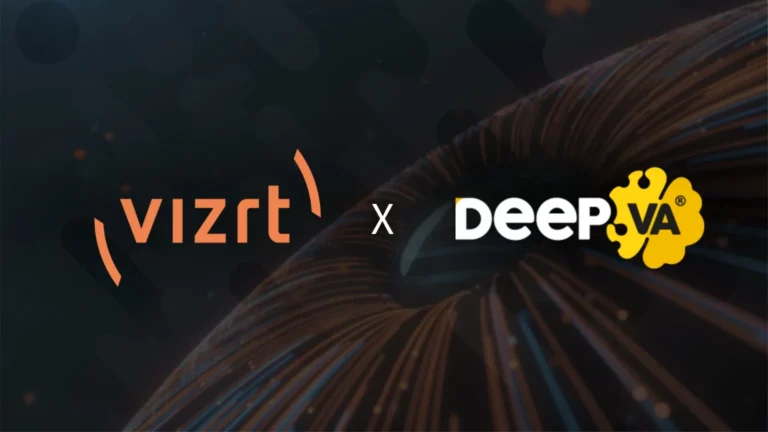In today’s information-driven world, spoken content is one of the most valuable assets for organizations and institutions. Parliamentary sessions, events, meetings and broadcasters and news outlets all generate hours of audio and video content every day. Capturing, transcribing and understanding this data is important not only for efficiency, but also for transparency, accountability and accessibility.
Traditionally, manual transcription is time-consuming and resource intensive. Traditional open-source or hyperscaler solutions are tied to cloud usage and token-based pricing, and often require hosting and maintenance by in-house staff. However, the bigger problem for regional markets is transcribing dozens of regional dialects under the general term ‘Arabic’.
Why is Arabic speech-to-text different?
In practice, Arabic is not one language, but a family of languages comprising over 32 dialects, each with its own vocabulary, meaning, grammar, and pronunciation. From Casablanca to Baghdad and Cairo to Riyadh, Arabic speech varies dramatically. Traditional systems often fail to capture this diversity, resulting in high error rates and unreliable transcripts for local markets.
This is where Lisan’s Voice model comes in — it is an industry-leading speech-to-text system that has been specifically designed for the Arabic language and its complexities. When combined with DeepVA’s transcription and semantic enrichment capabilities, you can generate high-quality Arabic and English transcripts in real time, and all provided using broadcast crate infrastructure and standards.
USPs & facts
-
Multilingual audio processing:
Handles both Arabic and English segments seamlessly.
-
Dialect coverage:
Supports over 32 Arabic dialects — from Cairene to Casablanca and from Doha to Damascus.
-
System integration:
Being available in DeepVA allows for straightforward integration with any existing broadcast workflow via a single API.
-
On-premises deployment:
Maximum confidentiality is ensured for sensitive institutions such as parliaments, ministries, broadcasters and big media outlets.
Introducing comprehensive dialect support
Our collaboration with Lisan AI has been enhanced to deliver industry-leading speech recognition across 32 distinct Arabic varieties, covering virtually every major urban centre and regional variant in the Arab world. This includes both foundational forms, Classical Arabic and Modern Standard Arabic, alongside comprehensive regional dialect support spanning:
Levantine varieties: From Damascus and Aleppo to Beirut and Jerusalem, our system captures the nuanced differences in Levantine Arabic, including urban variants such as the dialects of Hebron and Amman.
Gulf States Coverage: Complete support for Gulf Arabic variations, including Kuwaiti, Bahraini (Manama), Qatari (Doha) and the distinct Emirati dialects, as well as Saudi variants from Jeddah to Riyadh.
North African integration: We provide full coverage of Maghrebi Arabic variants, from Casablanca and Rabat in Morocco to Tunis and Sfax in Tunisia. We also offer comprehensive coverage of Algerian variants, including the dialects of Algiers and Oran.
Mesopotamian and Eastern Coverage: Support for Iraqi variants, including Baghdadi, Maslawi and Basrawi, as well as Yemeni dialects from Sana’a and Aden.
Regional Specialists: Even less commonly supported variants such as Sudanese (Khartoum), Libyan (Tripoli, Benghazi and Sabha) and specialized urban varieties are now fully integrated.
Beyond transcription: Productivity & Governance
Lisan AI is a deep-tech AI company, specializing in multilingual writing assistants, meeting management solutions, document automation, and productivity tools tailored for enterprises and governments in the MENA region. Founded with the mission of bridging global AI advancements to local market needs, Lisan’s products address challenges in language governance, compliance, communication efficiency, and institutional productivity in their region and beyond. Providing this knowledge via a versatile, broadcast-focused DeepVA infrastructure via a single API brings these advantages into real-life production workflows, even when required on-premises.
Why this matters
By integrating DeepVA’s Lisan’s voice model into our Speech Recognition, we are bridging the gap between global AI innovation and regional linguistic realities. The result:
-
Faster and more accurate transcription.
-
Greater inclusivity for Arabic-speaking communities.
-
Reliable, confidential and scalable solutions for broadcasters according to their standards and workflows.
-
Highest Security requirements are matched thanks to the ability of hosting it entirely locally.
-
Thanks to fixed pricing, avoid token-based pricing and make only the hardware infrastructure the limiting factor.
But this isn’t just about productivity. It’s about making an impact: empowering journalists, media companies and institutions to work faster, deliver more accurate content and, ultimately, strengthen democratic transparency through technology, regardless of the language.
With DeepVA and Lisan AI, Arabic languages are no longer a barrier.
They become a bridge.
Intereset in learning more? Join us at the IBC and experience it in action.




